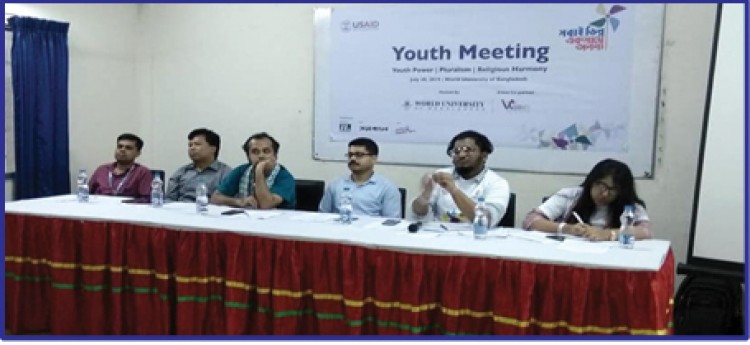‘Sobai Vinno Eksathe Ononno’, Youth Meet Up 2019

On July 30th’ highlighting the theme ‘Obirodh Road to Tolerance’ the 6th Youth meeting took place in World University of Bangladesh, Panthapath campus. The program was organized by the Department of Computer Science and Engineering (CSE) and was sponsored by USAIDS.
30 July, 2019
